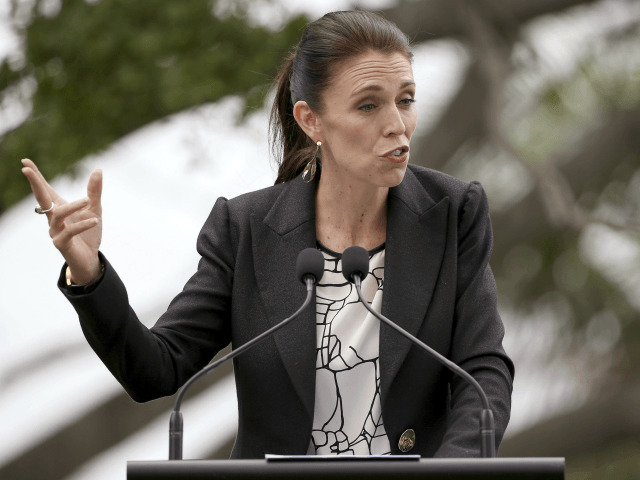New Zealand – which has had some of the toughest coronavirus restrictions in the world – announced Thursday it will begin to relax its border controls by the end of this month.
While the hardline left-wing Labour government has indicated a gradual relaxing of rules, Prime Minister Jacinda Ardern has emphasised that the country will not be open to everyone for months.
From the 27th of February fully-vaccinated Kiwis trying to return home are now able to quarantine for two weeks in Australia to avoid mandatory NZ quarantine upon their arrival.
From the 13th of March New Zealanders travelling from around the world will be able to return home without quarantine, as well as selected foreign vaccinated backpackers and skilled workers.
MASK OFF: New Zealand Prime Minister Jacinda Ardern admitted she wants to create two classes of citizens based on vaccination status. https://t.co/JItW1BI772
— Breitbart News (@BreitbartNews) October 25, 2021
From the 12th of April 5000 international students will be permitted to enter and from July all non-citizen travellers from visa-waiver countries will be granted entry with no quarantine – with October being the date NZ has planned to reopen visa applications for the rest of the world.
The current entry requirements for New Zealand – known as the Managed Isolation and Quarantine (MIQ) – enforce a mandatory quarantine in a government-managed hotel, where individuals are selected via a lottery process to secure a highly competitive spot. Individuals are also told to apply for a space up to three months in advance due to the limited nature of these quarantine places.
As a result of the strict border policy, only 17,000 New Zealanders have had confirmed coronavirus cases, and just 53 have died, out of a population of 5 million people. However, as less than 1% of the NZ population have been exposed to coronavirus there are concerns that upon returning to normal, the NZ people will be left without natural immunity to the virus.
The MIQ programme has had some success with the New Zealand Herald reporting that it has caught over 2000 cases of coronavirus, but it has received widespread criticism with the group ‘Grounded Kiwis‘ claiming it has left New Zealanders, including vulnerable individuals, stranded around the World, unable to return to their homes.
New Zealand’s Ministry of Health has confirmed that patients suffering from the Wuhan coronavirus could be eligible for a right to a lethal injection under the nation’s new euthanasia law. https://t.co/Ve0njCV4jy
— Breitbart News (@BreitbartNews) December 26, 2021
The New Zealand tourism industry, which accounted for employing 8.4 percent of the NZ workforce has also been decimated as there is a complete ban on foreign citizens entering the nation.
The decision to relax the borders comes after New Zealand was embroiled in an international scandal, where a pregnant NZ journalist Charlotte Bellis was denied entry to the country and extraordinarily was forced to rely on the Taliban for help, after being rendered essentially stateless.
The New Zealand authorities did however U-turn on their decision, and allowed Bellis to enter the nation via a medical exemption, but only after they received a major backlash in the press after Bellis published an article about her story in the New Zealand Herald on the 28th of January 2022.

COMMENTS
Please let us know if you're having issues with commenting.